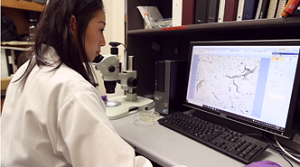Technology Profile

Timothy Phillips, Ph.D., and team at the Texas A&M University SRP Center developed therapeutic sorbent technology to reduce the ability of hazardous chemicals to harm the body. These edible sorbents decrease exposures by binding to chemicals, like per- and polyfluoroalkyl substances (PFAS), in the intestines.
Building on decades of research, the team found the clay-based edible sorbents can strongly bind specific PFAS and mixtures of PFAS and protected against toxicity.They are also exploring how these sorbents can be used to clean up PFAS-contaminated sites or reduce their uptake by plants .
Learn more about the team's work in this trainee spotlight video .
| Technology | Nutrient-amended montmorillonite clay. |
|---|---|
| Innovation | Builds on more than 30 years of research developing and testing broad-acting sorbent materials to bind hazardous chemicals more effectively. Can be added to food and water to reduce exposure to harmful contaminants, including in the aftermath of disasters. |
| Contaminant | PFAS including PFOA (perfluorooctanoate), PFOS (perfluorooctanesulfonate), GenX (hexafluoropropylene oxide), and PFBS (perfluorobutane sulfonic acid) |
| Principal Investigator | Timothy D. Phillips, Ph.D. |
| Institution | Texas A&M University SRP Center |
| Grant Number | P42ES027704 |
to Top



